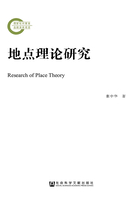
Abstract
In recent years, the “place standardization”construction mode brought about by the globalization trend has caused severe impacts on the value and meaning of “place”, “native place”, “nation” and“tradition”, and formed the sights in which thousands of cities, towns and villages are the same. In addition, the characteristic crisis, in which the human settlement environments lack the concept of place, keeps aggravating and expanding, which constantly arouses people's thinking on“construction of place characteristics”. The goal of human society is to create a feeling of “human-heart conversion”between human beings and environments. Furthermore, the place theory recognizes the relation between human beings and environments from the perspectives of personal feeling, psychology, social culture, ethics and morality. As the key content focused on by development of human settlement environmental space, place construction is the basic requirement for construction of “humanized”space and the soul embodying the value that“people can see the waters, view the mountains and remember the nostalgia”. Given above, the place theory currently studied by multiple fields is systematically arranged and analyzed in this book from a cross-disciplinary perspective(philosophy, sociology, urban economics, human geography, architecture and urban &rural planning science, etc.).
Firstly, the philosophical origin of “place” and the “place” orientation in disciplinary researches related to modern space are interpreted and analyzed in details from the perspectives of humanism and phenomenology; then, the basic concepts of cognitive composition of place theory are defined and illustrated, and the representative“place values”are analyzed and studied. The research focuses on clearing the related concepts of place theory, and analyzing the philosophical origin, methodology of place theory as well as standpoints of different academic schools. In addition, the roles of place character and place sense in human settlement environmental scientific system are decomposed and analyzed, and thus the composition concepts of “place values”in human settlement environmental scientific system are extracted.
Secondly, cored on urban space and aided by rural space, the composition of place values is analyzed. On the level of urban spatial types, the composition principles for “place values”in overall urban space, dignity space of urban locational landscape, urban living quality space, urban heritage park space, urban image space, urban cultural industrial space and urban experience-oriented commercial consumption space are analyzed according to the logical sequence from overall space to differentiated space. On the level of rural space, the “local knowledge”principles in the composition system of place theory are decomposed and analyzed. On the basis of different spatial decomposition analysis, the place construction mechanisms and relation rules developed in different spaces are explored systematically.
Thirdly, a systematic empirical study is carried out in the forms of field prospect and questionnaire distribution, and the development history of Chinese and foreign place construction is analyzed; then, the vision for place construction oriented towards sustainable urban development is concluded and extracted, and empirical demonstrations are analyzed in combination of the overall urban spatial development, typical historical cultural block space, traditional rural space and image space of traditional ancient town; thus, the realistic rules and practical modes for different types of spatial place constructions are concluded.
Therefore, the current researches of place theory, which are distributed into different disciplinary fields and lack comprehensive integrated disciplinary analysis, are integrated and analyzed systematically for the first time in this book. In addition, the methods, paths and measures for place construction are studied in depth, which contributes to the theoretical and practical innovations of “research of place theory in China”.